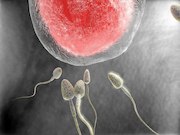Planning a career was the least common pathway to elective egg freezing
FRIDAY, July 6, 2018 (HealthDay News) — Most women undergoing elective egg freezing (EEF) are without partners, reflecting different life circumstances, according to a study presented at the annual meeting of the European Society of Human Reproduction and Embryology, held July 1 to 4 in Barcelona, Spain.
Marcia Inhorn, Ph.D., from Yale University in New Haven, Conn., and colleagues surveyed 150 women who had completed at least one cycle of EEF. Semi-structured, open-ended interviews were recorded, transcribed, and analyzed.
The researchers found that 85 percent of participants were without partners, reflecting six different life circumstances: being single, divorced or divorcing, broken up, deployed overseas, single mother by choice or circumstance, or career planner. The least common of these pathways was EEF undertaken for career planning. The 15 percent of participants with partners faced four different life circumstances: not ready to have children, relationship too new or uncertain, partner refuses to have children, or the partner has multiple partners. Most women had been unable to establish lasting reproductive partnerships although they had already pursued and completed their education and career goals.
“Most of the women had already pursued and completed their educational and career goals, but by their late 30s had been unable to find a lasting reproductive relationship with a stable partner,” Inhorn said in a statement. “This is why they turned to egg freezing.”
Copyright © 2018 HealthDay. All rights reserved.








